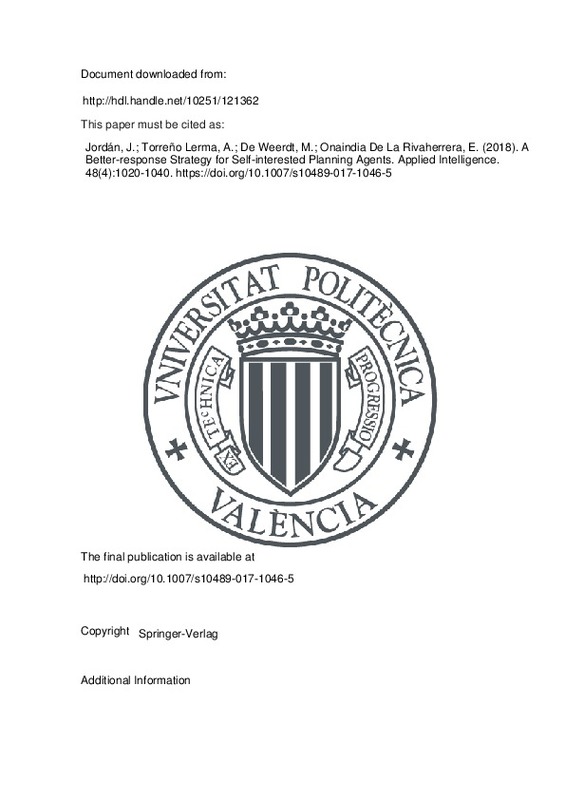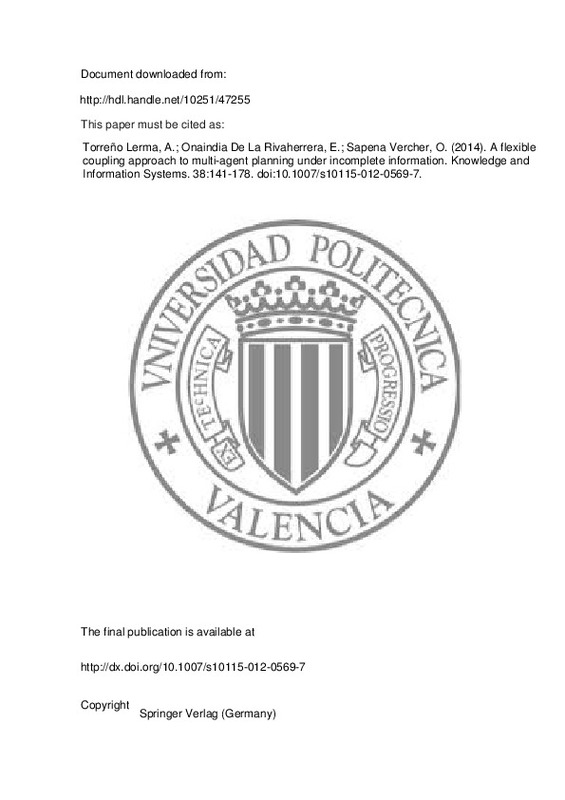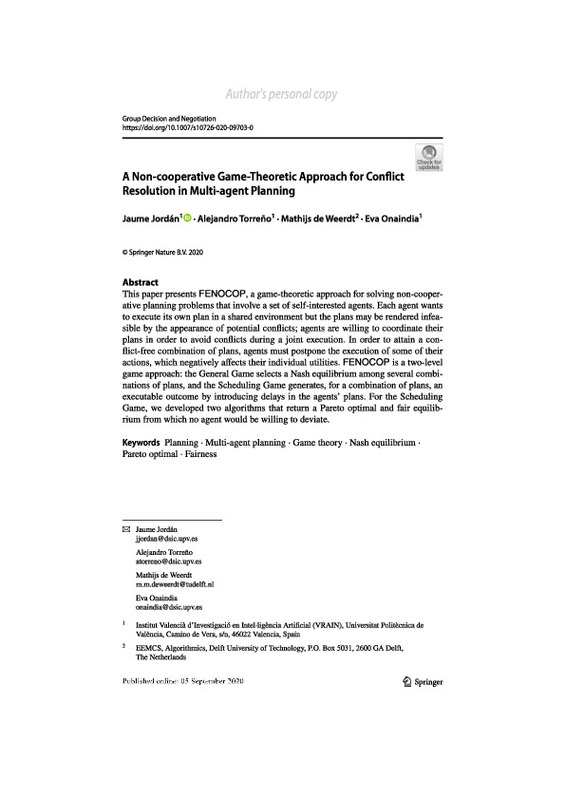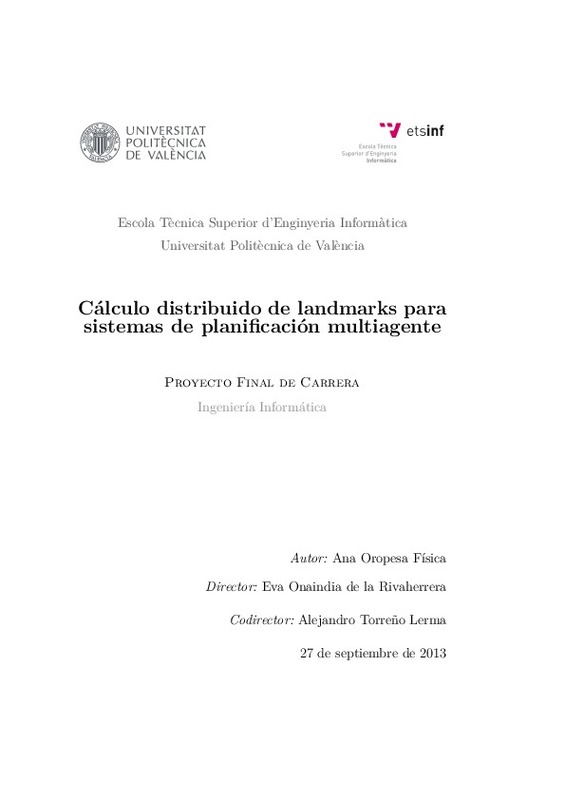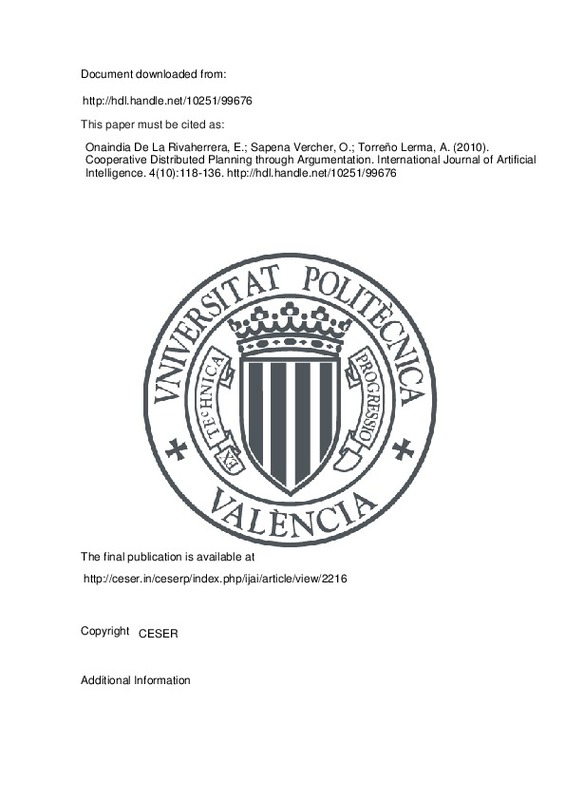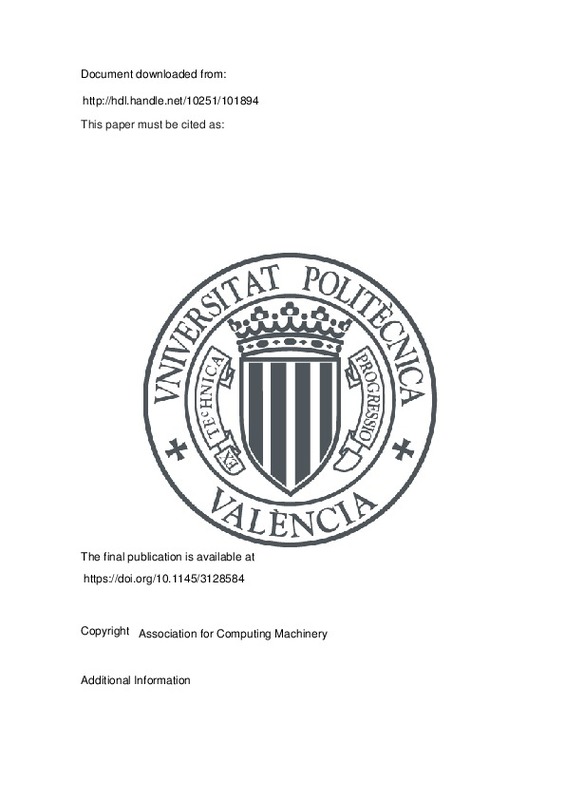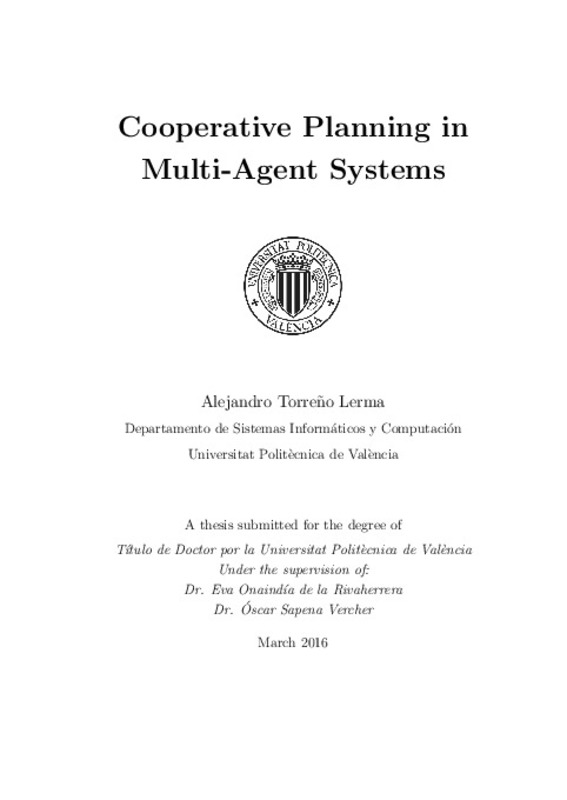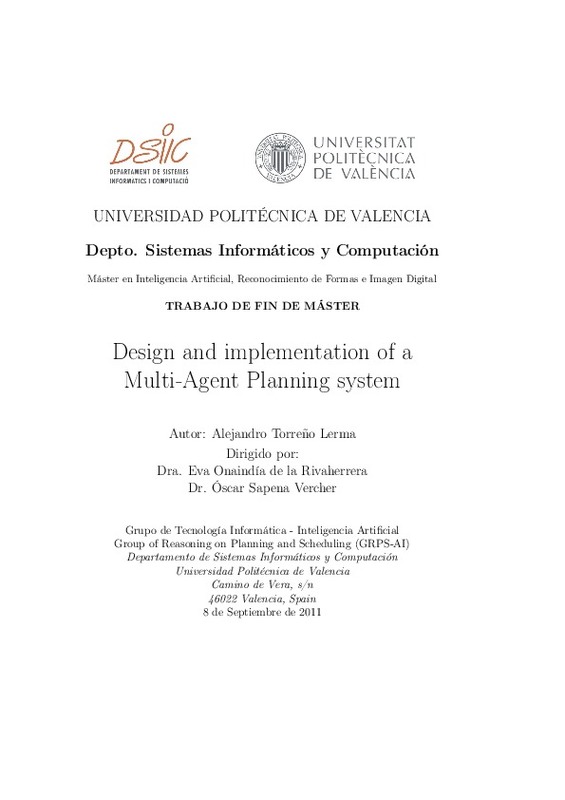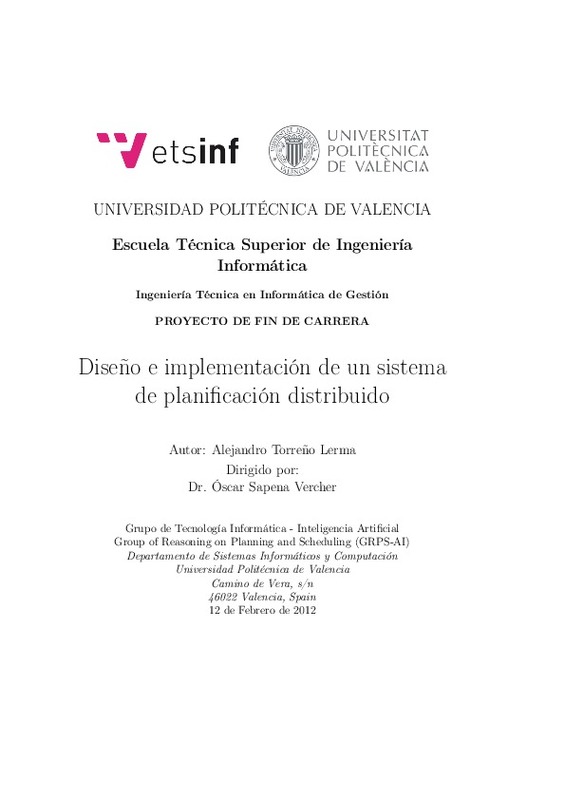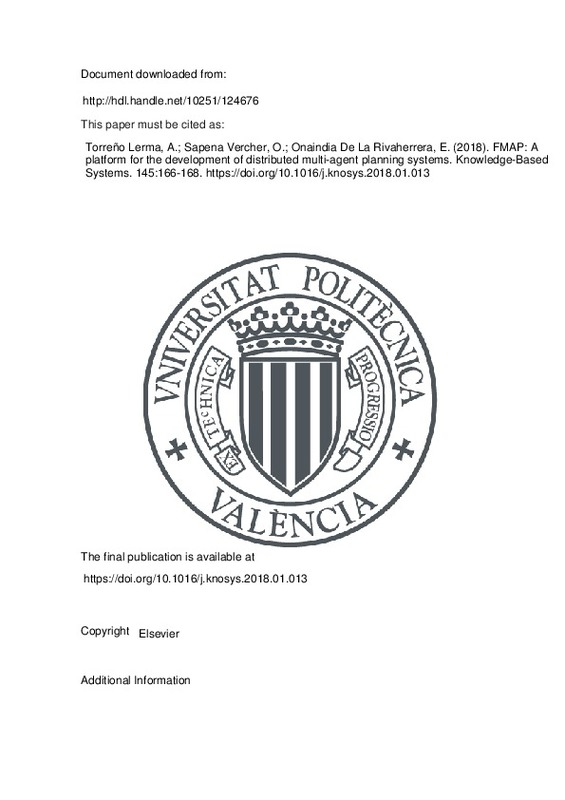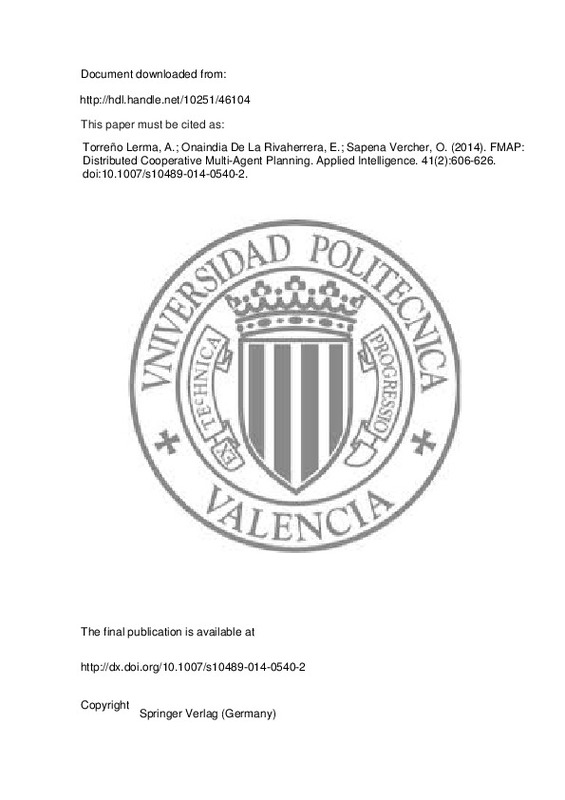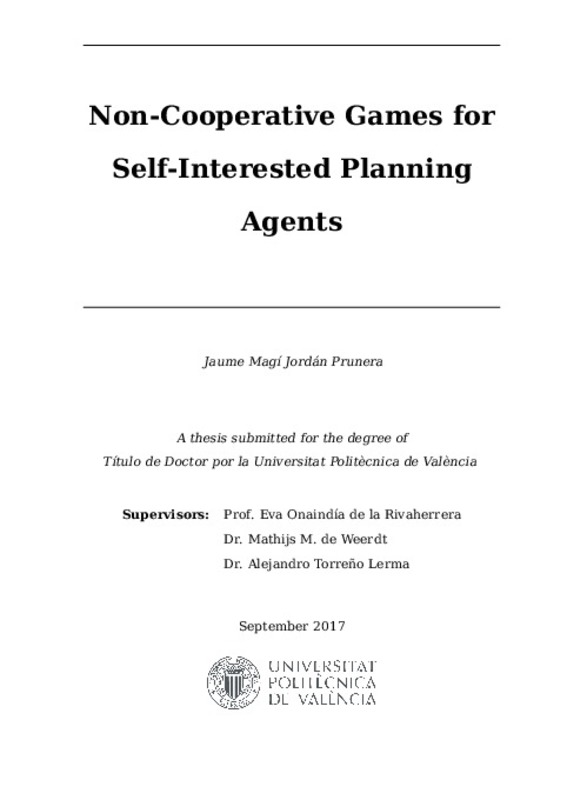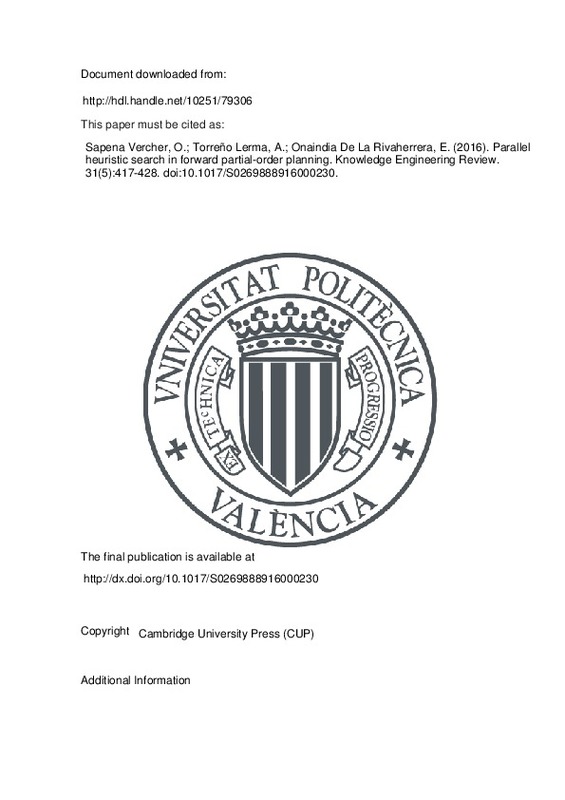

Listar por autor "Torreño Lerma, Alejandro"
RiuNet: Repositorio Institucional de la Universidad Politécnica de Valencia
- RiuNet repositorio UPV
- :
- Listar por autor
JavaScript is disabled for your browser. Some features of this site may not work without it.
Buscar en RiuNet
Listar
Mi cuenta
Ayuda RiuNet
Admin. UPV
Listar por autor "Torreño Lerma, Alejandro"
Mostrando ítems 1-14 de 14
-
Jordán, Jaume; Torreño Lerma, Alejandro; de Weerdt, M.; Onaindia De La Rivaherrera, Eva (Springer-Verlag, 2018)[EN] When self-interested agents plan individually, interactions that prevent them from executing their actions as planned may arise. In these coordination problems, game-theoretic planning can be used to enhance the agents¿ ...
-
Torreño Lerma, Alejandro; Onaindia de la Rivaherrera, Eva; Sapena Vercher, Oscar (Springer Verlag (Germany), 2014-01)Multi-agent planning (MAP) approaches are typically oriented at solving loosely coupled problems, being ineffective to deal with more complex, strongly related problems. In most cases, agents work under complete information, ...
-
Jordán, Jaume; Torreño Lerma, Alejandro; de Weerdt, Mathijs; Onaindia De La Rivaherrera, Eva (Springer-Verlag, 2021-02)[EN] This paper presents FENOCOP, a game-theoretic approach for solving non-cooperative planning problems that involve a set of self-interested agents. Each agent wants to execute its own plan in a shared environment but ...
-
Oropesa Física, Ana (Universitat Politècnica de València, 2013-10-02)En este Proyecto Final de Carrera se verá la motivación por la que hacer una heurística multiagente utilizando landmarks, la construcción de ésta y unos posteriores resultados y comparativas con la heurística monoagente ...
-
Onaindia de la Rivaherrera, Eva; Sapena Vercher, Oscar; Torreño Lerma, Alejandro (CESER, 2010)[EN] This paper addresses the problem of solving a cooperative distributed planning (CDP) task through an argumentation-based model. A CDP task involves building a central plan amongst a set of agents who will contribute ...
-
Torreño Lerma, Alejandro; Onaindia de la Rivaherrera, Eva; Komenda, Antonín; tolba, Michal (Association for Computing Machinery, 2017)[EN] Cooperative multi-agent planning (MAP) is a relatively recent research field that combines technologies, algorithms, and techniques developed by the Artificial Intelligence Planning and Multi-Agent Systems communities. While ...
-
Torreño Lerma, Alejandro (Universitat Politècnica de València, 2016-06-14)[EN] Automated planning is a centralized process in which a single planning entity, or agent, synthesizes a course of action, or plan, that satisfies a desired set of goals from an initial situation. A Multi-Agent System ...
-
Torreño Lerma, Alejandro (Universitat Politècnica de València, 2012-05-03)This work introduces the design and implementation of a Multi-Agent Planning framework, in which a set of agents work jointly in order to devise a course of action to solve a certain planning problem.
-
Torreño Lerma, Alejandro (Universitat Politècnica de València, 2012-02-20)
-
Sapena Vercher, Oscar; Onaindia de la Rivaherrera, Eva; Torreño Lerma, Alejandro (IOS Press, 2015)In this paper, we present FLAP, a partial-order planner that accurately applies the least-commitment principle that governs traditional partial-order planning. FLAP fully exploits the partial ordering among actions of a ...
-
Torreño Lerma, Alejandro; Sapena Vercher, Oscar; Onaindia De La Rivaherrera, Eva (Elsevier, 2018)[EN] The development of cooperative Multi-Agent Planning (MAP) solvers in a distributed context encompasses the design and implementation of decentralized algorithms that make use of multi-agent communication protocols. ...
-
Torreño Lerma, Alejandro; Onaindia de la Rivaherrera, Eva; Sapena Vercher, Oscar (Springer Verlag (Germany), 2014-09)This paper proposes FMAP (Forward Multi-Agent Planning), a fully-distributed multi-agent planning method that integrates planning and coordination. Although FMAP is specifically aimed at solving problems that require ...
-
Jordán Prunera, Jaume Magí (Universitat Politècnica de València, 2017-11-03)Multi-Agent Planning (MAP) is a topic of growing interest that deals with the problem of automated planning in domains where multiple agents plan and act together in a shared environment. In most cases, agents in MAP are ...
-
Sapena Vercher, Oscar; Torreño Lerma, Alejandro; Onaindia de la Rivaherrera, Eva (Cambridge University Press (CUP), 2016-11)[EN] Most of the current top-performing planners are sequential planners that only handle total-order plans. Although this is a computationally efficient approach, the management of total-order plans restrict the choices ...
Mostrando ítems 1-14 de 14

Universitat Politècnica de València. Unidad de Documentación Científica de la Biblioteca (+34) 96 387 70 85 · RiuNet@bib.upv.es


